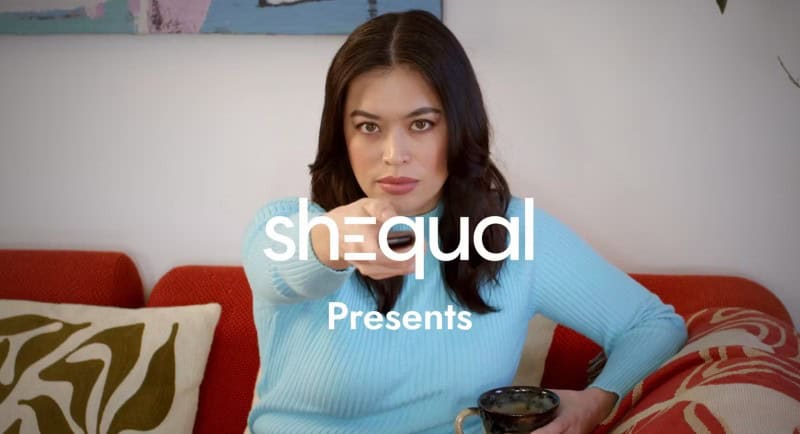Women’s Health Victoria’s advertising equality project, shEqual, has released its Commercial Breakdown campaign via The Open Arms ethical advertising agency to expose and address dangerous gender stereotypes in Australian ads.
Featuring comedians Alex Lee and Lewis Garnham, the campaign features a Gogglebox-style video where the duo call out harmful messages in recent Australian ads.
The work comes amidst Australia’s ongoing crisis of violence against women. Commercial Breakdown encourages Australians to discuss such harmful gender stereotypes viewers observe in ads and to support brands and agencies in creating advertisements that contribute to a more equitable Australia.
“The average Australian is exposed to thousands of ads a day, so what happens in those ads matters. That’s because advertising is a powerful multi-billion-dollar industry that exists only to influence us,” explained Women’s Health Victoria’s manager gender equity and capacity building, Lauren Zappa.
“We want to give people the tools to challenge gender stereotypes and to support brands that promote authentic, respectful, and diverse portrayals of all Australians.”
Advertising remains highly influential in shaping societal attitudes and behaviours towards women. Despite this, two out of three men believe there is a disconnect between their own views on success and how it is portrayed in advertising.
The 2023 Price of Success report, which studied 4,000 men in the United Kingdom and the United States, found that most men do not equate success with winning and find advertising often makes them feel worse about themselves.
Zappa continued: “Most ads still feature young, white, able-bodied, cis-gendered and heterosexual people, leaving many in our community unseen and unrepresented.”
See also: Suncorp, Telstra & Rebel named in shEqual’s 2023 top picks for gender equality in advertising
